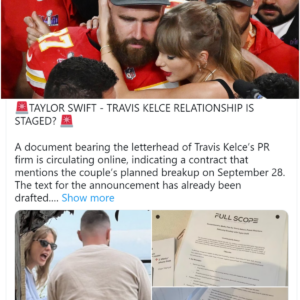In a surprising turn of events, comedian Dave Chappelle has once again found himself at the forefront of controversy,this time teaming up with acclaimed singer Fantasia to expose media mogul

Chappelle, known for his outspoken nature, recently raised concerns about Oprah’s influence over actress Taraji P. Henson, suggesting that Oprah acts as a handler and gatekeeper for influential figures in the murky side of Hollywood. Despite Oprah’s longstanding reputation as a humanitarian and philanthropist, Chappelle has expressed skepticism about her true intentions.
The cast of “The Color Purple,” including Fantasia and others, have come forward with accusations against Oprah, claiming they were subjected to harsh conditions on set. Allegedly, these conditions included long hours without security, shared trailers, low pay, and even instances of hunger.
Fantasia and Chappelle, typically steering clear of drama, have broken their silence to speak out against Oprah, suggesting that her treatment during the filming of “The Color Purple” was far from satisfactory. The film boasts a substantial budget of 100 million dollars, prompting questions about how the funds were allocated.
The controversy surrounding Oprah escalated when Taraji P. Henson criticized her for inadequate payment, revealing that the initial offer was so disrespectful that she contemplated leaving the project altogether. Despite Taraji’s initial criticism, Oprah has faced backlash for her history of mistreating and exploiting black actors, including Mo’Nique, who exposed her for alleged blacklisting and underpayment.
In a shocking revelation, it was disclosed that the cast had to endure grueling 12 to 15-hour shifts without their own trailers, forcing them to share a single cramped space. Furthermore, they were reportedly denied food and drinks during these long hours, leading to an outcry on social media.
Critics argue that the mistreatment of black actresses on the set of “The Color Purple” reflects a broader issue of underpayment and exploitation in the entertainment industry. Dave Chappelle, a consistent advocate for fair treatment, has voiced his frustration not only for Taraji P. Henson but also for Mo’Nique in the past.
As more details emerge, it becomes clear that Oprah’s actions have drawn widespread condemnation. Fans express disappointment, questioning why Oprah, as a producer, allowed the mistreatment of black actresses on a project she claimed held personal importance.
As the controversy unfolds, it seems that Dave Chappelle’s longstanding concerns about Oprah’s actions are being vindicated by the emerging events. The spotlight on these new claims raises important questions about equality and fair treatment within the entertainment industry, particularly for black actors.
News
Leaked Media Plan Says Travis Kelce & Taylor Swift Will Announce Their Breakup This Month – But His PR Company Says It’s Fake
Are we in the final month of Tayvis? UPI/Alamy Live News Ever since going public with their relationship last year, Taylor Swift and star Kansas City Chiefs tight end Travis…
Ben Affleck is pensive while leaving his office after ‘moving his things out’ of $60M mansion he shared with Jennifer Lopez as she smiles in new video
Ben Affleck and his ‘estranged wife’ Jennifer Lopez seem to be on two different planets these days The 51-year-old Oscar-winning star looked far from thrilled on Thursday…
Doctor and ‘ketamine queen’ to face trial next year over death of Matthew Perry
A doctor and a woman dubbed “the ketamine queen” will face a joint trial in March 2025 following the death of Friends star Matthew Perry, a judge…
EXCLUSIVERHOC’s Tamra Judge, 57, reveals pain from ‘brutal’ brow lift and CO2 laser treatment – as she swears off having more plastic surgery
Real Housewives of Orange County star Tamra Judge has vowed to stop going under the knife after a ‘brutal’ brow lift, CO2 laser facial and chemical peel left her in…
Jennifer Lopez and Ben Affleck’s split could ‘get ugly’ due to lack of prenup ahead of their Las Vegas elopement
Jennifer Lopez and Ben Affleck are doing their best to amicably divide their assets, but the process hasn’t been easy. As the stars negotiate the end of their two-year marriage with…
Gigi Hadid, 29, and Bradley Cooper, 49, pack on the PDA as she shows off her stunning bikini body while on family getaway in Italy
Gigi Hadid bared her bombshell bikini body as she and her shirtless boyfriend Bradley Cooper frolicked on a yacht off the Italian coastline during their summer holiday. The 29-year-old supermodel,…
End of content
No more pages to load











